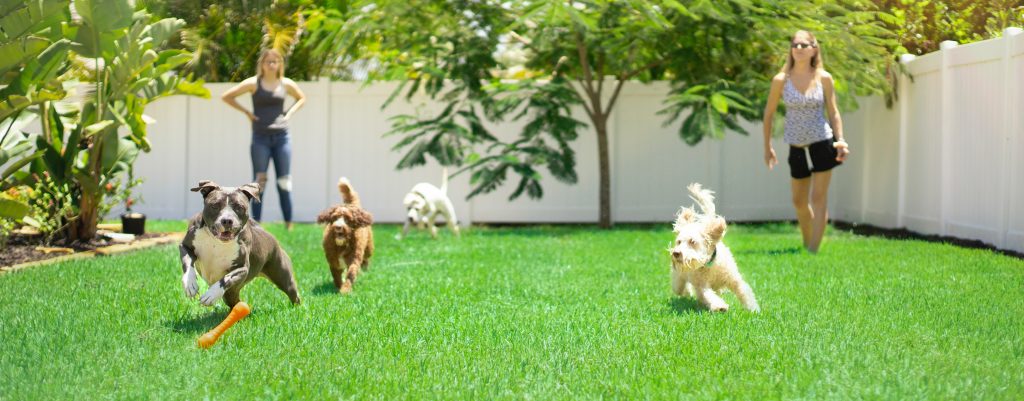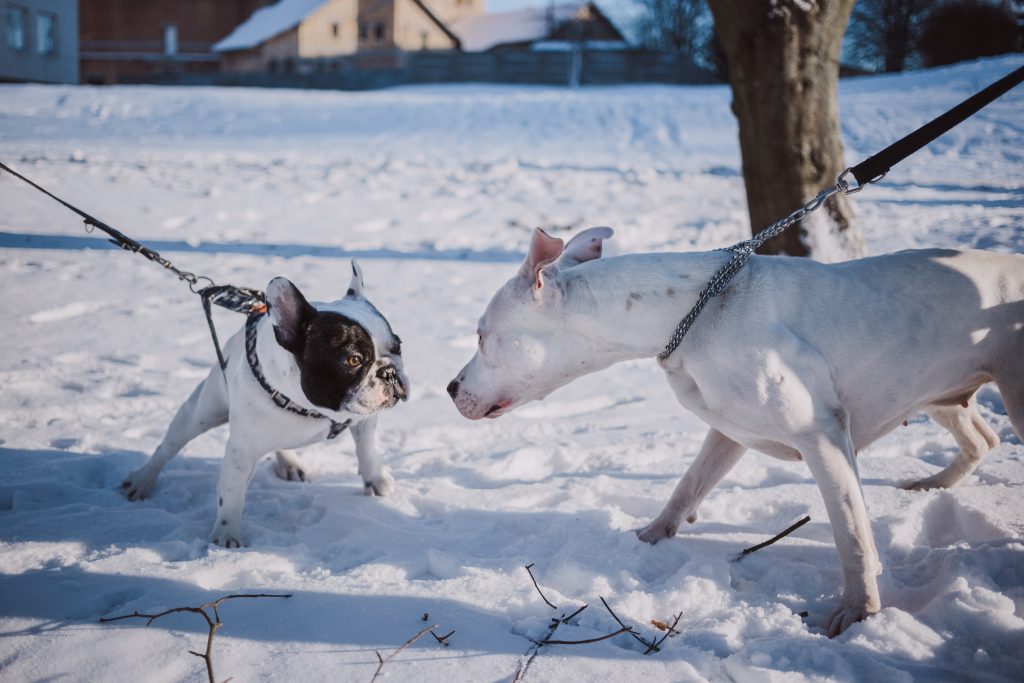Socialization is the process of exposing a dog to different people, places, and experiences in order to help them learn how to behave in a variety of different situations.
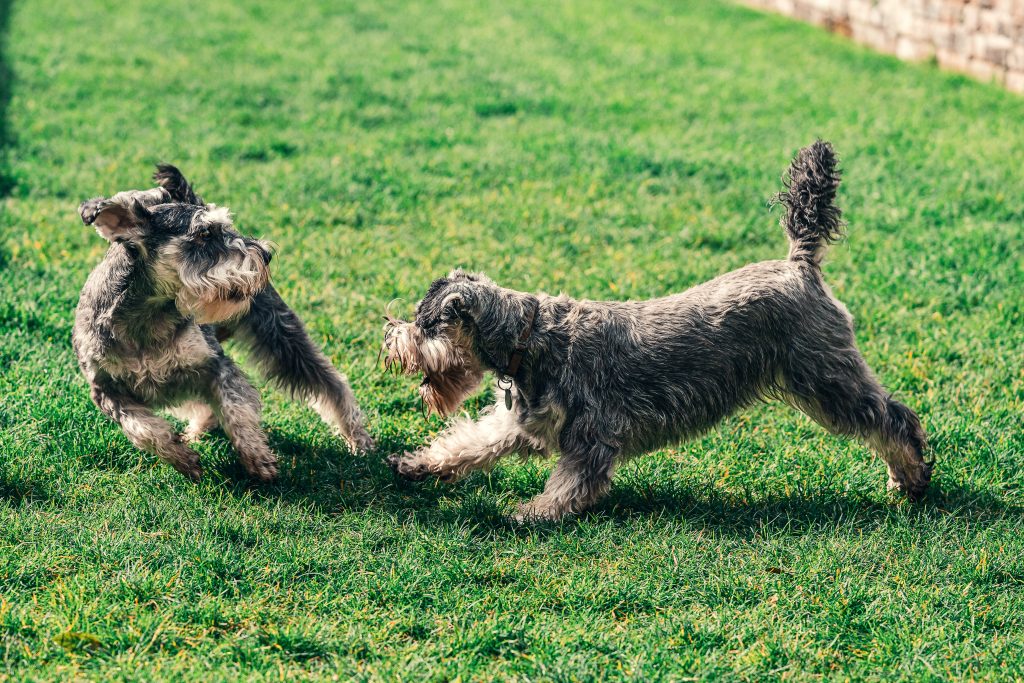
Some of the benefits of socialization for dogs include:
- Improved behavior: Socialized dogs are more likely to be well-behaved and less likely to exhibit problem behaviors such as fearfulness, aggression, or separation anxiety.
- Increased confidence: Socialization can help dogs feel more confident in new environments and around new people, which can make them more enjoyable companions.
- Enhanced learning: Socialized dogs are more open to new experiences and are better able to learn new things, which can make training and obedience work easier.
- Greater adaptability: Socialized dogs are more adaptable and better able to cope with changes in their environment, such as moving to a new home or interacting with new people.
Overall, the benefits of socialization for dogs are numerous and can have a significant impact on their overall well-being and quality of life.
Dogs are social animals, and just like humans, they thrive on interaction and companionship. Socialization is an important part of a dog’s development, and it can have numerous benefits for their overall well-being and behavior.
One of the main benefits of socialization is that it helps dogs become more confident and well-adjusted. When dogs are exposed to a variety of people, places, and situations from an early age, they are less likely to become anxious or fearful in unfamiliar situations. This can make them more comfortable in new environments and better able to cope with changes in their routine.
Socialization also helps prevent aggression in dogs. When dogs are not properly socialized, they may become fearful and anxious around other dogs or people, which can lead to aggressive behavior. On the other hand, well-socialized dogs are more likely to be friendly and approachable, which can help prevent conflicts and misunderstandings.
In addition to the emotional benefits, socialization can also have physical benefits for dogs. Regular socialization can help prevent boredom and reduce the likelihood of destructive behavior, as dogs are more likely to be mentally stimulated when they have opportunities to interact with others.
Socialization is also an important part of a dog’s overall training and obedience. When dogs are well-socialized, they are more likely to respond well to commands and be easier to train.
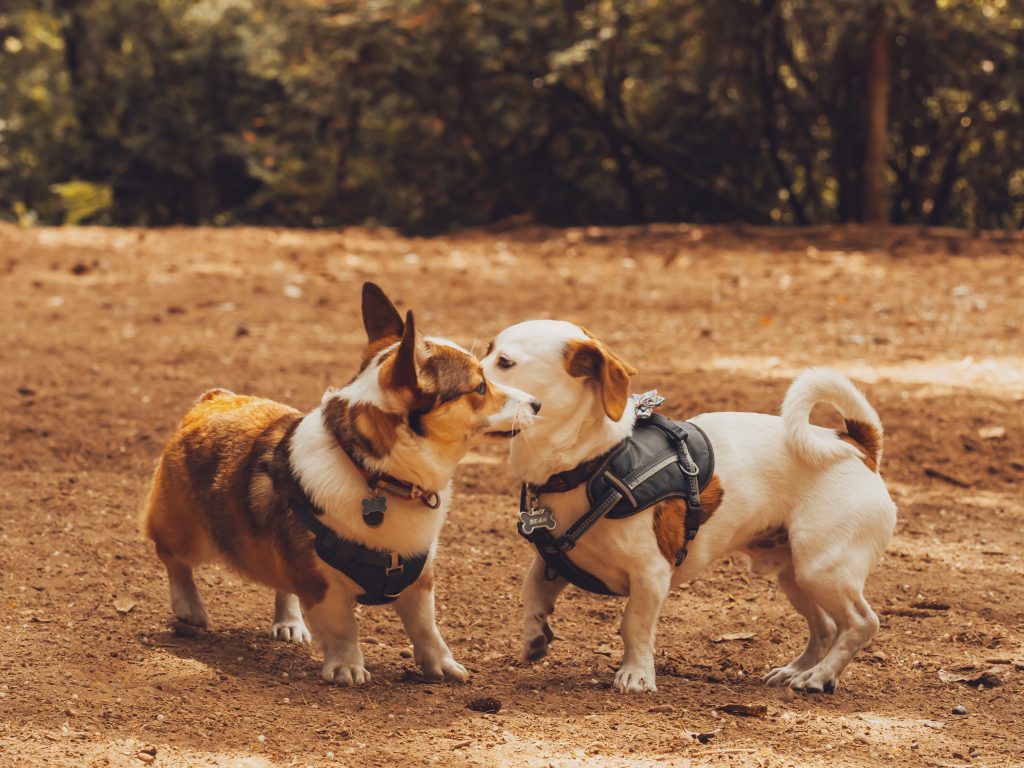
There are many ways to socialize a dog, including exposing them to different people and environments, taking them on walks and to dog parks, and enrolling them in obedience classes or socialization classes. It is important to start socializing your dog at an early age, as puppies are more receptive to new experiences and are less likely to develop fearful or anxious behaviors.
It’s important to start socializing puppies at an early age, between the ages of 8 and 16 weeks. This is the time when they are most receptive to new experiences and are learning about the world around them. However, it’s never too late to socialize an adult dog – it’s just a bit more challenging.
To socialize your dog, it’s important to expose them to a variety of people, places, and situations in a positive and controlled way. This can include visits to the park, obedience classes, and interactions with other dogs and people. It’s also important to keep a close eye on your dog’s body language and behavior and to stop any socialization activities if your dog becomes stressed or fearful.
Overall, the benefits of socialization for dogs are numerous and can have a positive impact on their overall well-being and behavior. By providing your dog with opportunities to interact with others and experience new things, you can help them become confident, well-adjusted, and well-behaved.
In conclusion
Socialization is an essential part of a dog’s development and overall well-being. It helps them learn how to interact with others in a positive way, reduce fear and anxiety, and become more confident and well-behaved in social situations. Socialization can also provide mental and physical stimulation, prevent boredom and destructive behavior, and strengthen the bond between a dog and their owner. It’s important to start socializing puppies at an early age, but it’s never too late to socialize an adult dog. By exposing your dog to a variety of people, places, and situations in a positive and controlled way, you can help them become well-rounded and happy pets.
I hope this information was helpful! If you have any further questions about socialization for dogs, please don’t hesitate to ask.
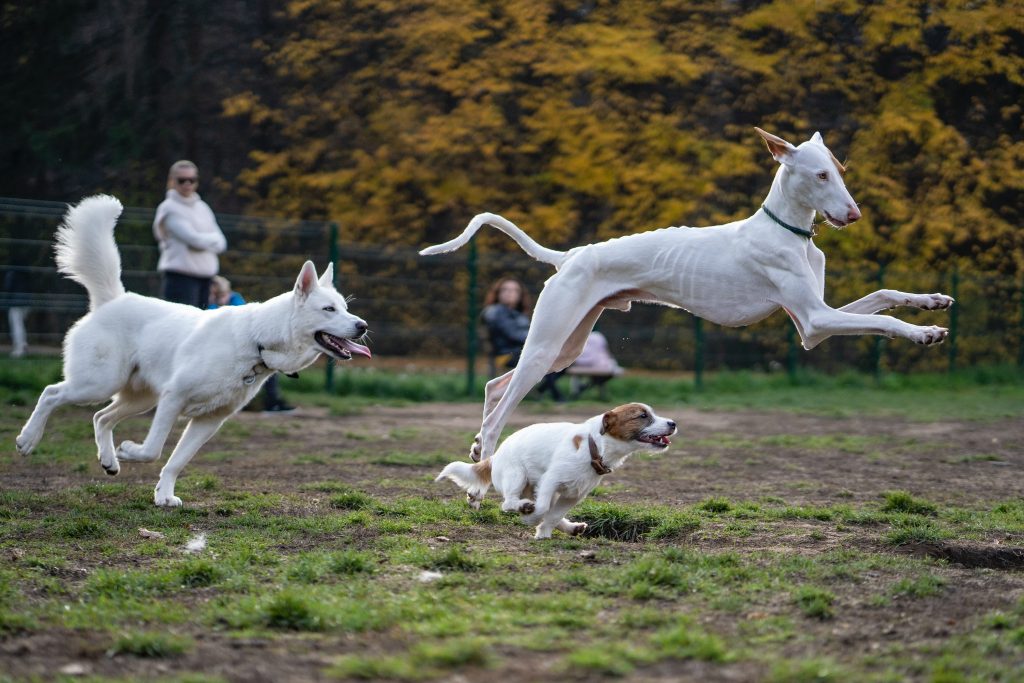
Frequently Asked Questions
1. When should I start socializing my dog?
It is important to start socializing puppies as soon as possible, ideally before they are 16 weeks old. This is because puppies are more receptive to new experiences during their early development and are more likely to develop into well-adjusted, confident dogs if they are exposed to a variety of people, places, and situations in a positive way. However, it is never too late to socialize a dog of any age, and it is always beneficial to continue socializing your dog throughout their life.
2. How do I socialize my dog safely?
To socialize your dog safely, it is important to introduce them to new people, places, and situations in a controlled and positive way. Start with short, positive experiences and gradually increase the duration and intensity as your dog becomes more comfortable. Avoid overwhelming your dog or exposing them to potentially dangerous situations. It is also important to pay attention to your dog’s body language and respect their boundaries.
3. How often should I socialize my dog?
It is important to continue socializing your dog throughout their life to ensure that they remain well-adjusted and confident. This can be done through regular outings, training classes, and other social activities. The frequency of socialization will depend on your dog’s individual needs and preferences, as well as your schedule and lifestyle.
4. What if my dog is fearful or aggressive?
If your dog exhibits fearful or aggressive behavior, it is important to address these issues as soon as possible. Seek the help of a qualified professional, such as a veterinarian or a certified dog trainer, to help you develop a plan to address these behaviors. This may include training exercises, behavior modification techniques, and in some cases, medication. It is important to be patient and consistent, as it may take time and effort to modify your dog’s behavior.
5. How can I socialize my dog during the COVID-19 pandemic?
During the COVID-19 pandemic, it may be more challenging to socialize your dog due to social distancing guidelines. However, there are still ways to expose your dog to new experiences safely, such as through training classes or walks in different neighborhoods. It is important to follow local guidelines and take precautions to keep yourself and others safe, such as wearing a mask and maintaining a safe distance from others.

